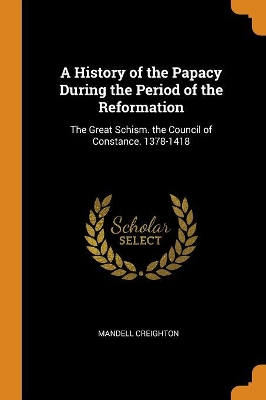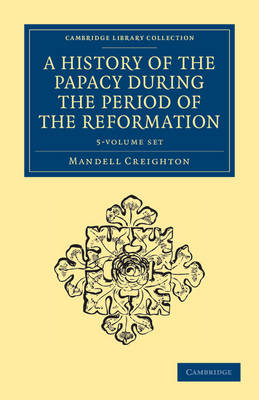Cambridge Library Collection - European History
5 primary works • 7 total works
Volume 1
A History of the Papacy During the Period of the Reformation
by Mandell Creighton
Volume 2
Volume 3
A History of the Papacy during the Period of the Reformation: Volume 3, The Italian Princes, 1464-1518
by Mandell Creighton
Volume 4
A History of the Papacy during the Period of the Reformation: Volume 4, The Italian Princes, 1464-1518
by Mandell Creighton
Volume 5
A History of the Papacy during the Period of the Reformation: Volume 5, The German Revolt, 1517-1527
by Mandell Creighton
A History of the Papacy during the Period of the Reformation 5 Volume Set
by Mandell Creighton


